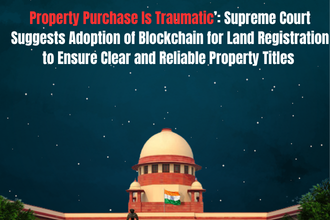Introduction
In recent days, two significant events in India’s judiciary have captured public attention. First, nearly twenty Supreme Court judges embarked on a relax-and-reconnect retreat to Ranthambore National Park for a weekend of rest outside the courtroom. Second, the Central Government appointed Justice M. Sundar as the new Chief Justice of the Manipur High Court, following the retirement of Justice Kempaiah Somashekar. Both news stories reflect aspects of the judiciary beyond the bench: its culture, structure, and human side.
Supreme Court’s Weekend Away: Ranthambore Retreat
What Happened
- Around twenty Supreme Court judges left Delhi on Friday, September 12, travelling in three buses, to Ranthambore National Park. They are expected to return by Sunday, September 14.
- The Rajasthan High Court and State administration are coordinating the logistics.
- Judges are using Leave Travel Concession (LTC) or paying out of their own pockets for travel and lodging.
Purpose and Context
- The retreat serves as a break from judicial duties — time to relax, bond with family, and perhaps, in informal settings, discuss ideas outside the pressures of courtrooms.
- This is not the first time such retreats have taken place. Earlier this year, former Chief Justice of India Sanjiv Khanna led a two-day retreat with 24 judges to Visakhapatnam.
Some Details that Stand Out
- Travel is by bus, starting from the Supreme Court premises — an unusual mode for many used to more formal travel arrangements.
- The trip is described by some judges as reminiscent of “school and college days,” likening it to a picnic with old friends.
- Not all judges opted in — some had prior commitments or responsibilities that conflicted with the trip. For example, Justice B. V. Nagarathna was unable to join, reportedly due to official commitments.
Justice M. Sundar’s Elevation as Chief Justice of Manipur High Court
Who Is Justice M. Sundar
- Born 19 July 1966 in Chennai.
- He studied law at Madras Law College and belongs to the first batch of the five-year integrated law course.
- He enrolled as an advocate in 1989 and practiced primarily in the Madras High Court, handling a broad range of civil matters.
- Elevated as a permanent judge of the Madras High Court on 5 October 2016.
His New Role in Manipur
- On 13 September 2025, the Central Government approved the Supreme Court Collegium’s recommendation to appoint Justice Sundar as Chief Justice of the Manipur High Court.
- He succeeds Justice Kempaiah Somashekar, and will assume office after 14 September 2025, following Justice Somashekar’s retirement.
Why These Developments Matter
Judicial Culture and Well-Being
The Ranthambore retreat highlights that even top judges need rest, human interaction, and time away from court duties. Such breaks can help reduce burnout, promote collegiality, and offer space for informal reflection. It also shows transparency in how judges are spending their private time (through LTC or personal expense).
Continuity and Leadership in the High Courts
The appointment of a new Chief Justice in any High Court is significant for maintaining judicial continuity, administrative oversight, and ensuring that decisions in that court are guided by strong leadership. Justice Sundar’s experience, background, and legal work indicate a seasoned jurist stepping into a leadership role, which will affect not only judicial output but also court administration in Manipur.
Potential Questions, Criticisms & Public Interest
Use of Public Funds vs. Personal Funds*: While judges are reportedly using LTC or paying themselves, some may question the mechanisms of expense, security, logistical arrangements, etc. Transparency will be key.
Administrative Burden & Precedent: Organizing large retreats involves coordination with multiple state administrations, security arrangements, etc. There might be questions about precedent and routine use of such retreats.
Conclusion
The two stories together underscore that the judiciary is not just about hearings, judgments, and formal legal procedures — it also involves personal lives, leadership transitions, rest, and culture. Such events remind citizens that judges, too, need time to recharge, just as the courts need steady leadership like that promised with Justice M. Sundar’s appointment.
Also Read


